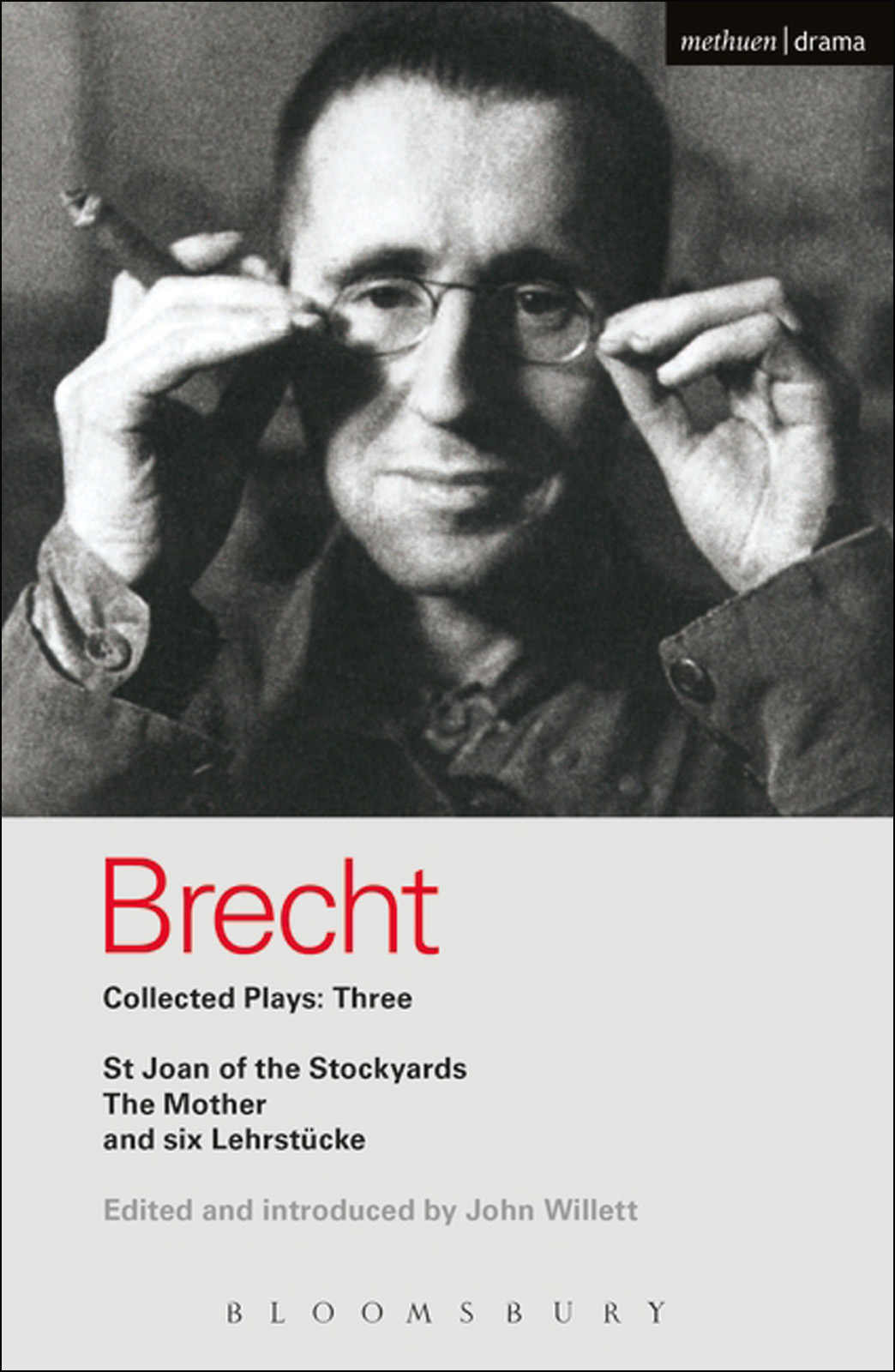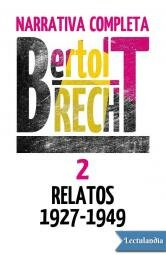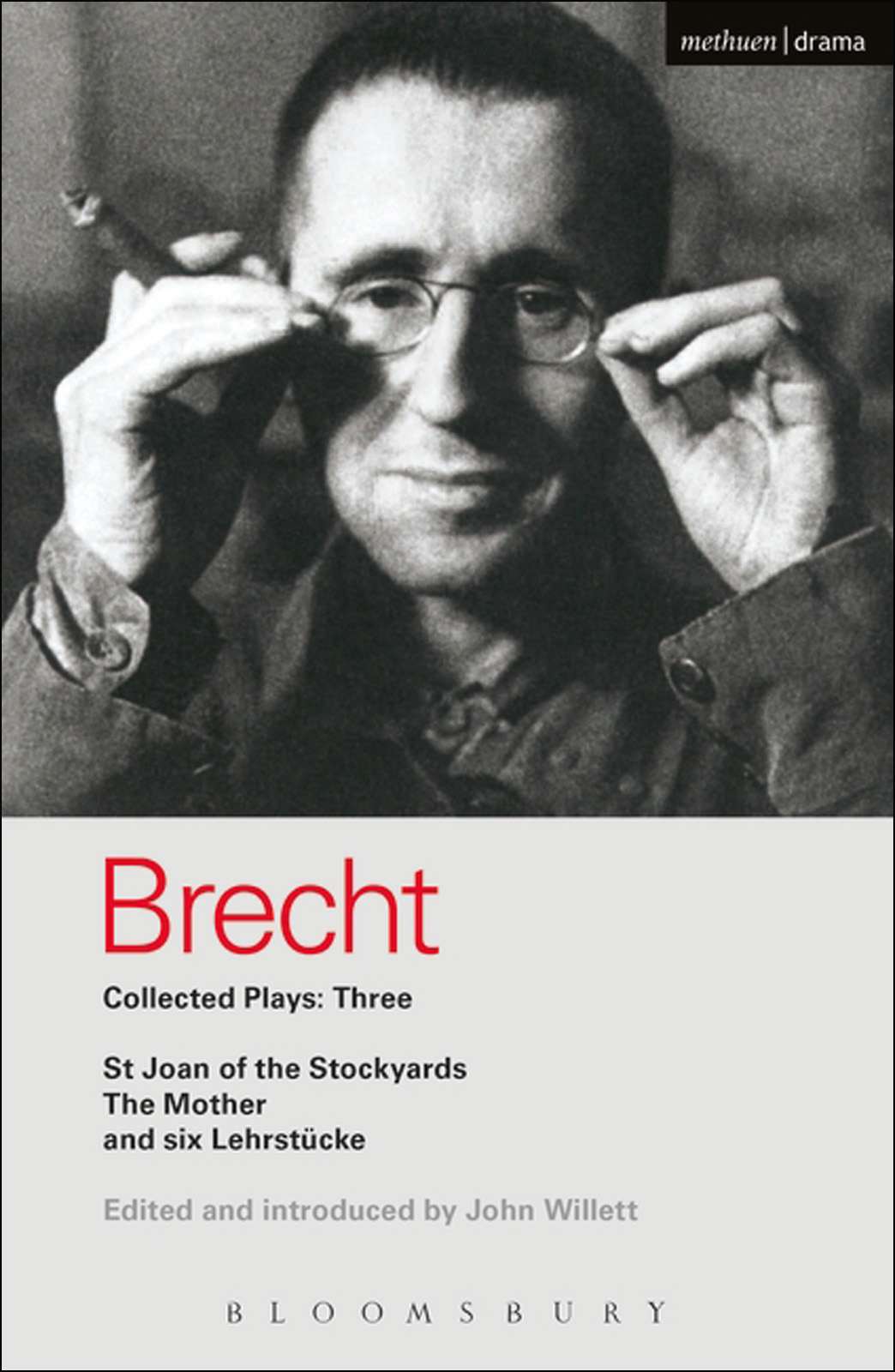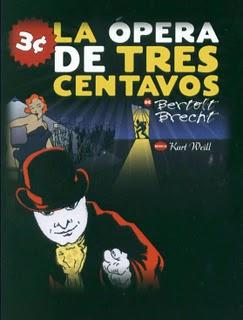oleebook.com
Lindbergh's Flight; The Baden-Baden Lesson on Consent; He Said Yes/He Said No; The Decision; The Mother; The Exception & the ... St Joan of the Stockyards de Brecht, Bertolt
de Brecht, Bertolt - Género: English
Sinopsis
The most comprehensive and authoritative editions of Brecht's plays in the English language.
Volume Three of Brecht's Collected Plays includes St Joan of the Stockyards - a play which recasts St Joan as Joan Dark springing hope into the hearts of factory workers at the mercy of meatpacker king Pierpont Mauler threatening cuts in the Depression; and the Lehrstücke or short 'didactic' pieces written during the years 1929 to 1933, are some of his most experimental work. Lindbergh's Flight, The Baden-Baden Lesson on Consent, He Said Yes / He Said No, The Decision,The Exception and the Rule, and The Horatians and the Curiatians reject conventional theatre; they are spare and highly formalised, drawing on traditional Japanese and Chinese forms. They show Brecht in collaboration with the composers Hindemith, Weill and Eisler, influenced by the new techniques of montage in the visual arts and seeking new means of expression. Also included is The Mother, based on Gorky's novel about the progress of a factory strike in Tver and the journey of a peasant mother from illiteracy to card-carrying communism.
The translators include H R Hays (The Horatians and the Curiatians), Ralph Manheim (St Joan of the Stockyards), Tom Osborn (The Exception and the Rule), Geoffrey Skelton (The Baden-Baden Lesson on Consent), John Willett (Lindbergh's Flight;The Decision;The Mother) and Arthur Waley (He Said Yes / He Said No). The translations are ideal for both study and performance. The volume is accompanied by a full introduction and notes by the series editor John Willett and includes Brecht's own notes and relevant texts as well as all the important textual variants.
**
Libros Recomendados - Relacionados
Reseñas Varias sobre este libro
III introduction for the critical years 1929-34. We can see a shift to epic technique and more overt leftwing political engagement in this volume.
St. Joan of the Stockyards: Joan of Arc fighting the good fight in the Chicago stockyards. When the factories close Hell itself / shuts its gate in our faces (scene II), which is a curious way to conceive the relation between work and hell. Spectres of Neumanns analysis of fascism in how in a gloomy time of bloody confusion / ordered disorder / planful willfulness / dehumanized humanity (id.).
Joan initially scolds workers for their lack of higher values, in that they want nothing but coarse sensual enjoyments (id.). The monopolist stockyard owner reconsiders his business for such higher values: I saw a steer die and it shook me so that Im giving it all up, and have even sold my interest in the factory (scene III). He asks Joan, who is set to agitate for the out-of-work employees, if he is right to withdraw: I dont know if your question is serious (id.). He doesnt care, feeling as if a breath from another world is wafting toward me (id.).
We see that a worker has fallen in a meat processing machine, and it is easier for the company that the worker has to go out in the world as bacon (scene IV). They try to bribe the workers widow with free lunch; when she accepts the bribe to not only drop her claim but accept the companys excuse, the company offers the anecdote up to Joan that the workers wickedness has no limits (id.). Joans awesome reply is that If their wickedness has no limits, their poverty has none either. Not the wickedness of the poor have you shown me, but the poverty of the poor. (id.) She continues thereafter: Where are their morals to come from, if morals are all they have? Where can they get anything without stealing it? My dear sirs, there is such a thing as moral purchasing power. Raise that and youll get morality too. And by moral purchasing power, I mean something very simple and natural: money. Wages. And that brings me back to the facts of the matter. If you go on this youll be eating your meat yourselves because the people out there lack purchasing power. (scene v) The plot works itself out in Trading Places, contingent upon the market price of canned meatending on a Faustian invocation Humanity! Two souls abide within thy breast! (scene XI).
The Mother: The chorus opens by calling attention to the protagonists attempt to replace the irreplaceable and afford the unaffordable: Dont think the question of why your kitchens empty / Will get decided in the kitchen (scene 1). The narrative involves a son who distributes labor organizing materials at a factory and gets in trouble thereby with the police; this draws his long suffering mother into the labor conflict and woe unto the cappies then, as she becomes progressively more involved and radicalized; the Russian setting makes the allegory for mother Russia plain enough. She becomes a committed communist in a place where the workers are being kept in the dark about the fact that they are exploited, and that this is a crime, and that this crime can be eliminated (scene 6b). When she is taught to read, Brecht mixes his comedic skill with epic theatre concerns: The Teacher: Right, but you have to start with the simplest, not the hardest. Hat is simple.
Sostakovich: Class War is a lot simpler.
The Teacher: Theres no such thing as class war. Lets be clear about that.
Sostakovich: I cant learn anything from you if you think theres no class war.
Pelagea Vlassova: Youre here to learn to read and write, and you can do that here. Reading is class war. (scene 6c) Good times. This scene also produces the famous Hungry man, grab a book: books will be your weapons (id.). (The Teacher will also move a progression the Mother, from hostility to the left to embracing it.) It includes a demonstration on how jingoism is wedded to the industrialists interests by making it a matter of patriotism to oppose strikers and leftists (scene 8b). After an execution: As he went to the wall where they intended to shoot him / He went towards the wall which had been built by men of his own kind / And the rifles they aimed at his breast, and the bullets / Had been made by men himself. Merely absent / Were they therefore, or dispersed; but for him were still there / and present in the work of their hands. (scene 10) She tells us do not fear death so much, fear an inadequate life (id.) in disputing with a landlady who would use scripture to evict.
A bunch of one acts follow, some of which are forgettablebut they are selected here as moments of his development toward epic theatre, drawing inspiration from different national traditions. Some interesting moments however, such as in the Baden-Baden Lesson on Consent, which argues dialectically that To refuse help requires force / To obtain help requires force also. / As long as force reigns help can be refused. / When force no longer reigns, there is no need of help. / So you should not demand help, but abolish force. / Help and force form a single whole / And this whole must be altered. Similarly, He Said Yes/He Said No involves a dialectical inversion of how Many will be found agreeing in error, but he / Would not give agreement to her illness, and / Insisted that illness has to be cured, which reminds one of Hegelian refusal to defer to the reality of mere facts. wise, The Exception and the Rule involves a labor dispute in the context of imperialist mineral extraction. The capitalist kills his employee with a very poor self defense argument, but: Merchant: To assume that the Coolie would not strike me down at the first opportunity would have been to assume he had lost his reason.
Judge: You may have killed a man who possibly was harmlessbecause you couldnt know him to be harmless. This happens also with the police at times. They shoot into a crowd of demonstratorsquite peaceful folkbecause they cant see why these folk dont simply drag them off their horses and lynch them. Actually, the police in such cases fire out of pure fear. And that they are afraid is proof of their good sense. You mean you couldnt know the Coolie was the exception!
Merchant: One must go by the rule, not by the exception.
Judge: Exactly. What reason could this Coolie have had to give his tormentor something to drink?
Guide: No sensible reason.
Judge: Such is the rule: an eye for an eye. Only a fool waits for an exception. The agambenian thesis writes itself.leftwing-theory of-best-sentence-and-moost-solaas1 Keith823 33
I read The Decision and The Horatians and the Curiatians. Both are, I guess, what youd call agitprop. The basic theme of both plays seems to be that capitalistic society is killing people so you should happily die for the party. Or something that.
Ive always said Brechts flight from the Nazis diverted his attention from absurd Communist agitprop this, and allowed him to develop what I consider his best plays. Today, the plays in this set seem quaintly ridiculous knowing how it all turned out. It kind of feels a cult.
I didnt read The Mother, but I can safely say I do not recommend the rest of the plays in the set unless you have a yearning for socialist platitudes.owned partial-read1 Roland1 review7 Read
"Exception and the Rule" was one of the best things I read in college1 AliAuthor 17 books651
???? ???? ?????? ???? ?? ????? ????????? ???? "????? ?????" ??????? ???????? / "?? ????? ?????" ????????? ????? / "??????? ? ?????" ????? ?????? ????(?. ?? ????) / "?? ?? ??? ??? ? ?? ?? ??? ??" ????? ????? / ??????? ?????? (?????? ?? ?????? ??) ????????? ????? / "??? ? ???? ???? ???" ???? ??????? / "??? ????? ? ??????? ??" ????? ????? / "???? ??? ???" ?? ????? ?? ???? ??????? ? ???? ???? / "??? ???" ? ??????? ???????" ???? ??????? / "?? ??? ?????" ?? ????? ?? ????? ? ?????? ? ???? ??????? / "????? ??? ??????" ?? ????? ?? ???? ???????? ? ???? ???? / "???? ??? ????? ?????" ?? ????? ?? ????????? ????? ? ???? ??????? / "?????? ??? ???? ?????" ???? ?????? / "?????? ?? ????"(????? ?? ????) ????? ?????? / "???? ??? ??? ?????" ?? ????? ?? ?????? ??? ???? ? ???? ??????? / "????? ??????? ? ????? ?? ???" ?? ????? ?? ????????? ?????? ????? ? ?????? ? ??? ??? ????? / "?????? ? ?????" ????? ?????? ? ??? ??????? / "?????" ?????? ??????? / "????" ????? ?????? ? ??? ??????? / "??? ????? ? ??? ?????" ????? ????? / "???" ?????? ???? ????? / "?????? ?? ??? ??? ????" ?????? ???? / "?????? ???????" ?????? ???? ????? / "???????? ???? ???" ???? ????? / "????? ????? ???? ?????" / ???? ????? / "??? ???? ???? ?? ??? ?????" ????? ????? / "????? ?? ??? ????? ???" ?? ?????? ???? ????? ?????? ????? / "???? ? ?????? ??? ????????" ???? ??????????? / "???? ??????" ???? ??? ???? / "?????? ??? ???" ??????? ????? / "?????? ? ??????? ?? ????" ??????? ????? / "???? ???" ????? ???????? / "???? ??? ????" ??? ??? ????? / "?????????" ???? ???? / "????? ?? ????" ??? ???? ??????? / "??? ???? ????????" ?? ????? ?? ???? ??? ? ???????? ???? ?? / "???? ?????? ???? ?????? ????" ???????? / "????? ?????? ??" ?????? ????? / "?????? ????" ?????? (????? ??????) /"?????? ?????" ?????? ????? / ? ?????? ???? ?? ???? ??????? ? ?????? ? ????? ????plays David Loveland125 14
Autor del comentario:
=================================





